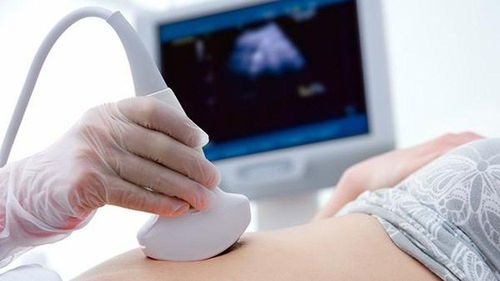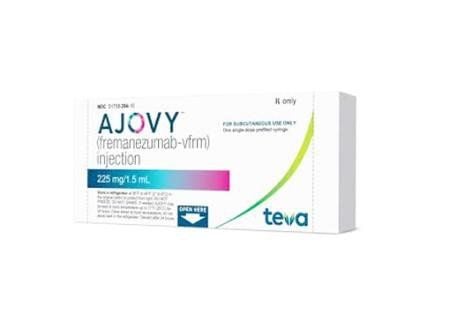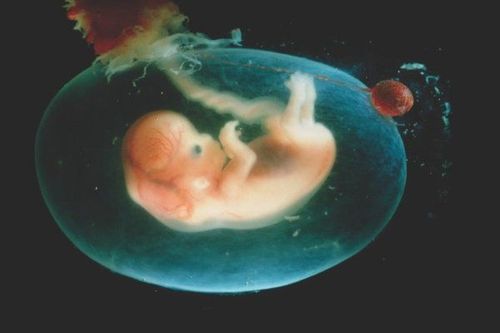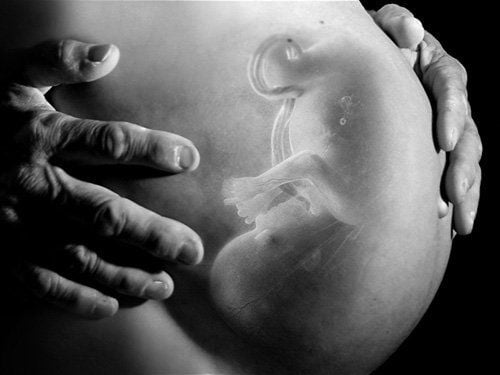This is an automatically translated article.
The article is professionally consulted by Master, Doctor Ly Thi Thanh Nha - Department of Obstetrics and Gynecology - Vinmec International Hospital Da Nang.
Non-stress is only an indirect test, so caution should be exercised in drawing conclusions about the results obtained, where the absence of increased rhythm itself and loss of intrinsic variability in fetal heart rate may mean pathological significance of pregnancy and is more of a warning sign than a true diagnosis.
1. How to read Non-stress test results
When doing a Non-stress test (NST), women are usually monitored for about 60 minutes. Evaluation of chromosomes is based on 3 factors:Basic Fetal Heart Intrinsic Oscillation The increase in fetal heart rate corresponding to each fetal movement Normal basic fetal heart rate is about 140 beats/min (ranges from 120-160 beats/min), the intrinsic oscillation (which is the change in fetal heart rate per second) was about 10-25 beats and during the first 20 min of the trial there were at least 2 beats with a peak increase of at least 15 beats per minute. with a basal fetal heart rate and lasts for a minimum of 15 seconds. However, if in 20-30 minutes, there are 3-4 increased rhythms corresponding to fetal movement, it can also be concluded that the pregnancy is normal and does not need to be tested further.
Chromosome is concluded to be responsive when all 3 factors are within normal limits, this conclusion is valid to confirm that the fetus is still healthy and will continue to do so for about 1 more week if there are no other adverse events. A baby who moves around a lot and has a normal heart rate is classified as "Responsive" - that is, healthy and without fetal distress. When the first 2 factors are normal but the third factor does not satisfy the requirements, the conclusion is that the chromosomes are not responding and it is called suspected chromosomes. A "Unresponsive" fetus means that the baby does not perform the minimum number of movements within a 40-minute period or the fetal heart rate does not increase proportionally with fetal movement. A non-reactive result does not mean that the baby may be in danger. When 1 of the 3 factors above does not meet the normal level. In case of suspected or unresponsive chromosomal response, this test should be repeated after 20 minutes, or 6 hours, or 24 hours (if no risk is found), if the pregnancy is considered to be at high risk, then carry out the test. other methods of surveying fetal health to make appropriate conclusions about fetal health status and appropriate interventions. To confirm a chromosomal non-responsiveness, the technician will either make a noise on your belly or give you a sugary drink to encourage your baby to move and test for another 40 minutes. If the doctor determines that the baby may be suffering from fetal distress, the mother will be asked for further testing (such as stress test, fetal biometrics) to determine if induction of labor is required as well as to consider the following: emergency cesarean section or not.

2. Notes in Non-stress test results
ST negative: the fetal heart rate chart does not decrease when there are at least 3 contractions/10 minutes, each lasting at least 40 seconds. Suspicious ST: The fetal heart rate is decelerated but not constant and does not occur in the following contractions. ST positive: fetal heart rate chart has a steady and prolonged decrease. Note:Hyperstimulation: if uterine contractions persist for > 90 seconds and > 5 contractions in 10 minutes, or basal hypertonicity persists, the presence of decreased rhythm does not necessarily indicate death. bow each other. Unsatisfactory: when there are less than 3 contractions in 10 minutes or the strength of contractions is weak. Negative ST: is a good sign of fetal health, can repeat the test every week. ST-positive: May appear due to hypoglycemia due to supine position, fetal malformations, reduced oxygen transport capacity in the mother's blood, true uterine insufficiency. Combined with chromosomal unresponsiveness in adulthood: termination of pregnancy (cesarean section). Combined with chromosomal response: usually ST false positive, can repeat the test in 24 hours or do other evaluation tests. Suspected or hyperexcited ST: The test should be repeated within 24 hours. Suspicious ST may indicate a healthy fetus or a newly born fetus with fetal distress, and if accompanied by a responsive chromosome, the fetus may be healthy. Vinmec International General Hospital offers a Package Maternity Care Program for pregnant women right from the first months of pregnancy with a full range of antenatal check-ups, periodical 3D and 4D ultrasounds and other routine tests to ensure the mother is healthy and the fetus is developing comprehensively.
Pregnant women will be consulted and checked for health under the close supervision of experienced and specialized Obstetricians, helping mothers have more knowledge to protect their health during pregnancy as well as reduce reduce complications for mother and child.

Doctor Nha has strengths and experience in diagnosing, monitoring and treating pregnancy, pregnancy pathology. Pregnancy screening. Perform caesarean section techniques. Laparoscopic surgery to treat ovarian cysts, ectopic pregnancy.
Please dial HOTLINE for more information or register for an appointment HERE. Download MyVinmec app to make appointments faster and to manage your bookings easily.














